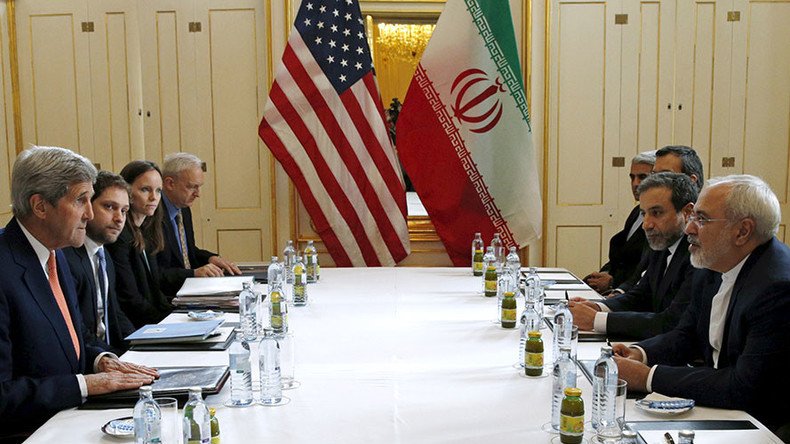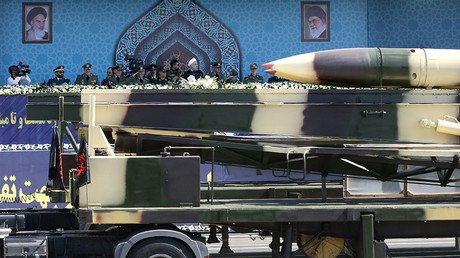US lawmakers want commission to look at Iran’s compliance with nuclear deal

Two congressmen have introduced legislation seeking to create a bipartisan commission to verify whether Iran is complying with the 2015 nuclear deal before President Donald Trump can make good on his campaign promise to scrap it.
Representatives Gerry Connolly (D-Virginia) and Francis Rooney (R-Florida) are seeking to set up a commission that would include 16 members of Congress and four representatives of the executive branch – of departments of State, Energy, Treasury and Defense – who would together examine intelligence data and draw a conclusion regarding Iran’s compliance with the agreement.
The landmark nuclear deal with Iran was negotiated by US, Russia, France, Germany, China, the United Kingdom and the European Union two years ago to ensure that Iran does not build a nuclear weapon.
“Increasing public transparency surrounding the Iran deal’s implementation is a critical priority. Congress has a role to play in effective oversight of this agreement, and we must assert that role regardless of whether the president certifies Iran’s compliance,” Connolly said Wednesday.
The proposal comes amid reports that Trump may decertify Iran’s compliance with the deal next month, when Washington’s certification deadline matures. CBS News reported last week that the president is leaning toward the decision.
Trump said he had made a decision regarding the deal, but declined to say what that decision was. Secretary of State Rex Tillerson said Trump has not shared his decision “externally.”
However, Tuesday, the Chairman of the Joint Chiefs of Staff Joseph Dunford told Congress that Iran is complying with the agreement. The UN’s nuclear watchdog, the International Atomic Energy Agency (IAEA), announced a similar assessment three weeks ago.
'Concise' #Trump won't tell allies his decision on Iran nuclear deal' – Tillerson https://t.co/SppEKKvevH
— RT America (@RT_America) September 21, 2017
Last week, Trump declared the deal with Iran an “embarrassment to the US” and threatened to quit the agreement if the IAEA is not granted full access to all Iranian military sites.
In July, his administration certified that Iran was in compliance and lifted the nuclear-related sanctions against Iran under the agreement. However, US officials have said that despite “technically complying” with the nuclear agreement, Iran remains a “destabilizing” force in the region.
“We cannot let a murderous regime continue these destabilizing activities,” Trump told the UN General Assembly last week, citing Tehran’s support for Hezbollah, the Syrian government as well as for Shia Houthis in the Yemeni civil war.
Iran could pull out of the 2015 agreement and bolster its nuclear program at a “greater speed,” should President Trump decertify the pact, Iranian Foreign Minister Javad Zarif warned this week.
Zarif underlined that Iran’s nuclear program “will remain peaceful,” but “will not address and accept the limitations that we voluntarily accepted.”
Zarif also noted that certification is not part of the deal and is only “US internal procedure.”
“It doesn’t absolve President Trump and the administration of the responsibility because the only authority that has been recognized in the nuclear deal to verify [compliance with the deal] is the IAEA,” the minister pointed out.
The nuclear agreement, officially known as the Joint Comprehensive Plan of Action (JCPOA), has to be re-assessed every 90 days by the US president in accordance with a Congress-created mechanism. The next deadline is set for October 15. If Trump decides to decertify, Congress will have 60 days to vote on re-imposing sanctions lifted under the pact in exchange for Tehran capping its nuclear program.
Under the terms of the deal, Iran agreed to reduce the number of its uranium enrichment centrifuges by two-thirds; cap its enrichment below the level needed for weapons-grade material; reduce its enriched uranium stockpile by 98 percent from around 10,000kg for 15 years; and allow international inspections.













